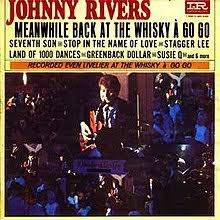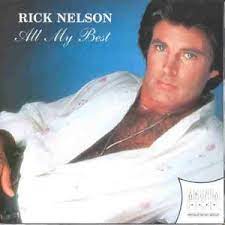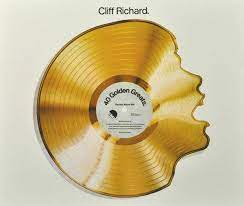Tutorial Pricing: $3.25ea OR any 10 for $10
(use code "Any10410" at checkout)
Paid Requests for $25ea
(comes with any 8 freebies -> so 9 for $25)
100's Of Free Demos & Chord Sheets
- Home
- 50s & Vegas
- Elvis Presley Greatest Hits
Elvis Presley Greatest Hits
For the Acoustic
Welcome to my Elvis Presley greatest hits page where you will discover many great songs from the king you can easily learn on the acoustic guitar.
Help yourself to the free demos, chord sheets and tips below and if you'd like to purchase the full lesson tutorial, there is a link above for a small fee.

9 Easy Elvis Guitar Songs
9 Elvis Presley Famous Songs
11 Gospel Songs by Elvis Presley
12 Elvis Presley Wall Art
14 Elvis Songs In The 50s
14 Elvis Songs In The 70s
17 Elvis Songs From The Movies
18 Love Songs Of Elvis Presley
Click the dropdown menu to quickly access the lessons on this page.
Elvis Presley Greatest Hits
Chords, Demos, Lyrics, Tutorials
1. All Shook Up
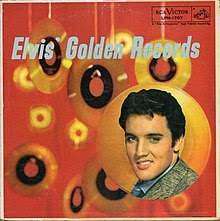
All Shook Up became one of his biggest hits. The song was written by Otis Blackwell and Elvis Presley and was released as a single in 1957. It spent eight weeks at the top of the Billboard Hot 100 chart, becoming Elvis's first number one hit in the United States.
The song features Elvis's signature rock 'n' roll style and catchy lyrics, making it an iconic track in his discography. "All Shook Up" is often associated with the excitement and frenzy surrounding Elvis Presley's early career, and it remains a classic and popular song to this day.
The track by Elvis Presley was not originally included on one of his studio albums. It was released as a standalone single in 1957. However, due to its popularity, the song was later included on several compilation albums and greatest hits collections.
The first Elvis Presley album that featured "All Shook Up" was the compilation album titled "Elvis' Golden Records," released in 1958. This album gathered many of his hit singles up to that point, and "All Shook Up" was among the standout tracks included.
I play number with drop D tuning and a capo 2nd fret. The rhythm is a steady down up down up with some walking bass throughout with the chords D, G and a A but no required.
Jump To Top
2. Anyway You Want Me
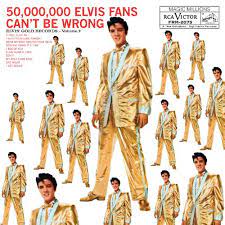
Anyway You Want Me (That's How I Will Be) was written by Aaron Schroeder and Cliff Owens and recorded by Elvis during his early career.
The track was released as a single on September 8, 1956. The single performed well on the charts, reaching No. 20 on the Billboard Hot 100 chart.
The song is a ballad that features Elvis' smooth and emotive vocal delivery. It showcases his ability to convey emotion through his singing.
Elvis recorded "Anyway You Want Me" on April 10, 1956, at RCA Studios in Nashville, Tennessee. The session was part of his prolific early recording career.
"Anyway You Want Me" is often associated with Elvis' early rock and roll style and his impact on popular music and can be found on several compilation albums of Elvis's early hit songs.
I play this one in standard tuning with a down down down up down down and repeat pattern with the chords C, Am, F, G, C7, Ddim, D7 and a G7. There is no lead work in this number.
Jump To Top
3. Blue Suede Shoes
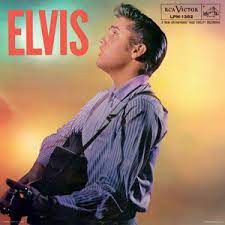
Blue Suede Shoes is a Carl Perkins number from 1955 and was recorded by Buddy Holly and Eddie Cochran. Elvis did his version for his debut album in 1956.
Elvis never had a #1 as Perkins did with his version. Elvis's version peaked at #20. Strangely enough Elvis almost had a #1 with this song on the US country charts, where it reached #2. Go figure! The song was also a #2 in The Netherlands and a top ten in Canada, Sweden, Australia and the UK.
The track appears on his debut studio album which was released on Mar 13th, 1956. The album was recorded in Nashville over a two day period in Jan of 1956.
Carl Perkins had recorded his version a few months earlier in Dec 1955 and recorded his version a few days after writing the song. He managed a #2 hit on the national chart and a #1 on the Memphis chart. It was recorded by Sam Phillips at Sun studio and he suggested the line go man go be changed to go cat go, which Perkins agreed to do. Later on Buddy Holly and Eddie Cochran did their versions but they never had a #1 hit either.
This one I play with drop D tuning with a capo 2nd fret and a steady down up down up pattern with some walking thrown into the mix. Some lead required here with the chords G, C7, D and a D7.
Jump To Top Of Elvis Presley Greatest Hits
4. Don't Be Cruel
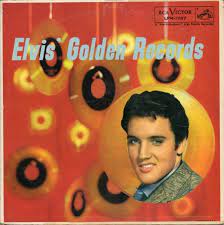
Don't Be Cruel is another one of Elvis Presley's most famous songs. He recorded it in New York City on July 2, 1956, and it was released as a single on July 13. The song quickly became a huge hit, reaching No. 1 on both the pop and R&B charts.
It's a fast-paced rock and roll song with a catchy beat, mixing R&B and country styles. Elvis sang it with lots of energy. The song was released with "Hound Dog" on the other side, which also became very popular.
"Don't Be Cruel" is seen as an important song in rock history. It helped make Elvis a star and shaped his image as an exciting performer. The song remains popular and is still considered one of Elvis's best.
With
this song I like to use a drop D tuning so I can incorporate some
walking bass into the rhythm using the four chords, D, G, Em and A.
The
rhythm on this song is a down down up down up down up and repeat as you
play some of the walking bass notes, which I fully explain in the full
lesson tutorial.
There is no lead work in this song, just straight rhythm.
Jump To Top
5. Heartbreak Hotel
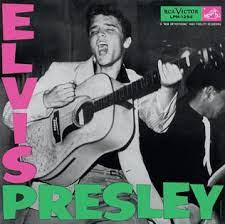
Heartbreak Hotel is a famous song that came out in 1956 and was a big hit, helping make Elvis a rock and roll star. The song was written by Mae Boren Axton, Tommy Durden, and Scotty Moore. They got the idea from a sad newspaper story about a lonely man.
The song mixes blues, country, and gospel music in a new way. Elvis's deep voice and the song's catchy guitar sound made it very popular. It became number one on different music charts, showing that many types of people liked Elvis's music.
"Heartbreak Hotel" was important in rock and roll history. It started Elvis's amazing career and is still loved by fans today.
I
choose to play this song with a drop D tuning but that is always
optional. Using the lower D gives a deeper bass sound to the song. This
also changes the G chord structure to two top strings on the 5th. I'm
playing mainly just down-strokes for the rhythm in the typical rock and
roll kinda vibe.
There
are only three chords here and they are D, G, A but you can throw in an
A7 and a D7 as you see fit as you move from the A and D chord
positions.
There
is a bit of picking and some bass playing in this one but not too
difficult.
Jump To Top
6. I Want You I Need You I Love You
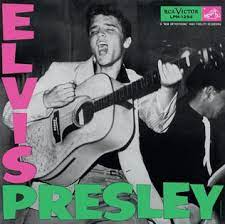
I Want You, I Need You, I Love You was released as a single in 1956 by RCA Victor. The song was written by Maurice Mysels and Ira Kosloff and became one of Elvis's early hits.
"I Want You, I Need You, I Love You" showcases Elvis's romantic crooning style and features a combination of rock and roll and ballad elements. The song's heartfelt lyrics and Elvis's passionate delivery resonated with audiences, contributing to its success.
The single reached number one on the Billboard Top 100 chart, becoming Elvis's second chart-topping hit after "Heartbreak Hotel." It solidified his position as a rising star and further established his popularity in the music industry.
"I Want You, I Need You, I Love You" was later included on Elvis's self-titled debut studio album, "Elvis Presley," which was released in 1956. The album featured a collection of his early hits, including this particular song.
This one on the edge of my vocal range in C, Dm7, G7, G#, G, G7, Am, C7, F, Fm, D7, Cmaj7, Gm and an Fm with a down up down up down and repeat rhythm pattern in standard tuning. No lead work required in this one.
Jump To Top Of Elvis Presley Greatest Hits
7. One Night With You
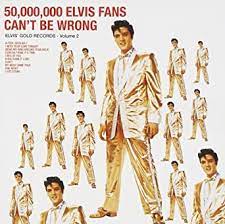
One Night With You was a 1956 song that was a hit for Smiley Lewis. Elvis had a larger success after he re-wrote some of the lyrics and got approval to record it from the record label.
His release was in 1958 and hit #1 in the UK and #4 in the US. This one can be found on the "50,000,000 Elvis Fans Cant Be Wrong" album.
This one I play in standard tuning with a root up down up root up down up rhythm pattern with some riffs and down strokes. No picking required with the chords E, A, B7, E7 and a Gb.
Jump To Top
8. Teddy Bear
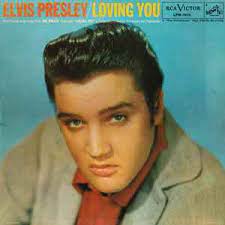
Teddy Bear is a popular Elvis Presley song from 1957. It was written by Kal Mann and Bernie Lowe. The song is a fun mix of rock and roll and doo-wop, with a catchy tune.
In the song, Elvis sings about wanting to be his girlfriend's "teddy bear" and protect her. It shows off Elvis's smooth voice and upbeat style.
"Teddy Bear" was a big hit. It reached #1 on the US charts and was popular in other countries too. This was Elvis's seventh #1 hit in the US, helping make him a big rock and roll star.
The song was also part of Elvis's album "Loving You," which came out the same year.
I use drop D tuning here but no lead work required as you move through the chords G, Gb, F, C, C7 and C. For rhythm you'll need a down up stop up down up stop up with a fast shuffle and some walking bass.
Jump To Top
9. That's Alright Mama
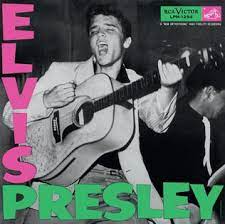
That's All Right Mama was the first commercial single by Elvis and is considered one of his breakthrough songs. The song was originally written and recorded by blues musician Arthur "Big Boy" Crudup in 1946.
Elvis's version of the song was recorded at Sun Studio in Memphis, Tennessee, on July 5, 1954. It combined elements of blues, country, and rockabilly, creating a new and exciting sound that would become a cornerstone of rock and roll.
The single was released on July 19, 1954, and received positive reviews, helping to establish Elvis as a rising star in the music industry.
This one is in A, A7, D7 and an E7 with a root down up down up down up and repeat rhythm pattern in standard tuning and some lead work required.
Jump To Top Of Elvis Presley Greatest Hits
10. Treat Me Nice
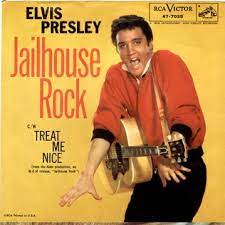
Treat Me Nice was a B-side song to the A-side single Jailhouse Rock which was release back in 1957.
The song also appeared in the Jailhouse Rock film.
This one I play in standard tuning with the chords G, C, C7, F, D7, G7, Adim, C#7 but there is no lead work in this song. For rhythm I play a down up stop up down up stop up and repeat pattern.
Jump To Top
Thanks for stopping by my Elvis Presley greatest hits page and I hope you found the info listed here helpful and useful.
If you liked this Elvis Presley greatest hits page you might also like ... (click images)
Top Hits Of The 50s
